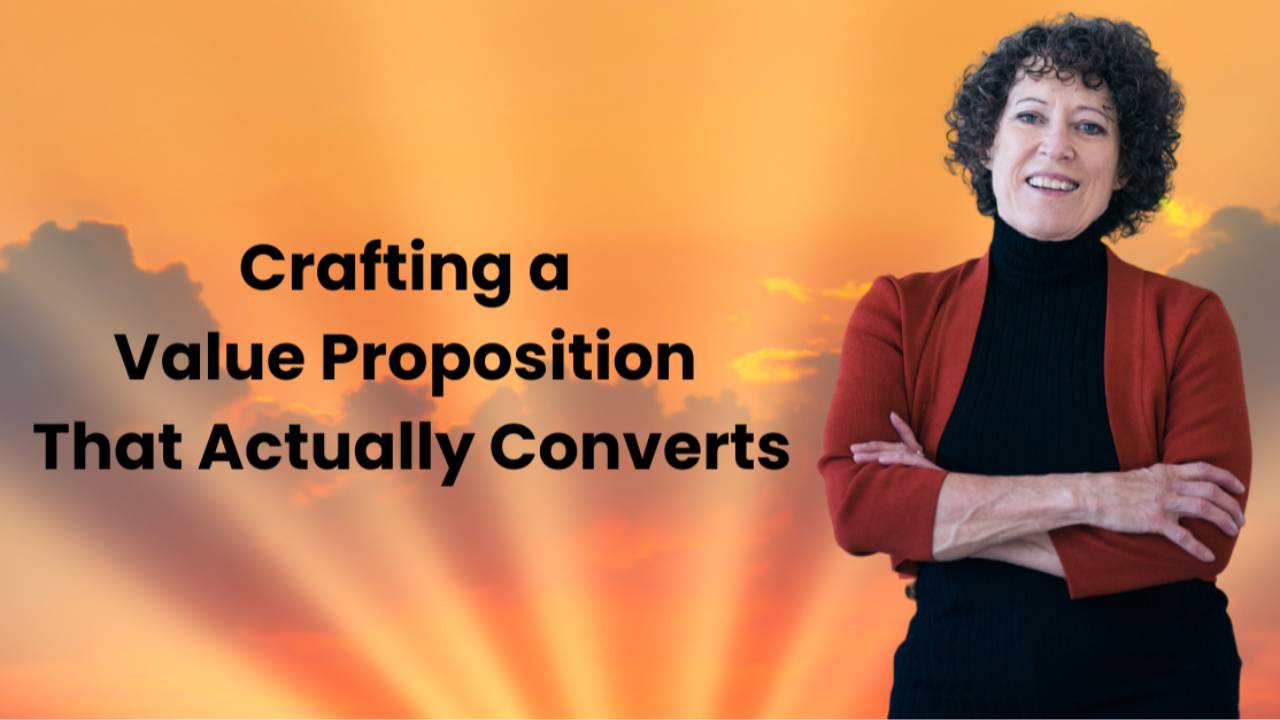The Marketing Maze: Why Most Consultants Get Lost
In today's oversaturated digital landscape, one of the most common challenges self-employed consultants is finding the right marketing approach among countless options.
Many consultants invest substantial resources -- both time and money -- into marketing strategies that simply don't deliver results.
They bounce between trendy tactics, spread their efforts too thin across multiple channels, or blindly copy competitors without tracking whether these marketing activities are directly contributing to their business goals.
The Cost of Marketing Without Direction
When you lack a focused marketing strategy:
- Resources drain away on low-performing channels and campaigns
- Morale suffers as efforts fail to translate into measurable results
- Market positioning weakens as your message becomes diluted or inconsistent
- Growth stagnates despite the amount of time spent on marketing
Conversely, consultants who find their ideal marketing approach experience:
- Higher conversion rates with less effort
- Stronger brand recognition in their target market
- Better ROI on marketing spend
- Sustainable growth that builds momentum over time
Common Approaches (And Why They Fall Short)
Many consultants try to solve their marketing challenges through these familiar methods:
1. The Trendy Tactic Chase
Jumping on every new marketing trend—from TikTok to AI-powered personalization—without evaluating if it aligns with business goals or audience preferences.
Why it fails: Trends aren't inherently effective for every business. They often require significant resources to execute properly and can quickly become outdated, leaving you constantly scrambling to catch the next wave.
2. The Competitor Copy
Directly mimicking successful competitors' marketing strategies without understanding the underlying principles that make them work.
Why it fails: What works for competitors might not work for you due to differences in resources, audience relationships, market positioning, or internal capabilities. You'll always be one step behind, appearing as a pale imitation rather than a distinct choice.
3. The Quantity Approach
Maintaining presence across every possible marketing channel in hopes of maximizing reach.
Why it fails: Without focus, you spread resources too thin to make a meaningful impact anywhere. This approach typically results in mediocre execution across all channels rather than excellence in the ones that matter most to your audience.
A Better Approach:
The Consultant's Strategy Scorecard
I've developed the Consultant's Strategy Scorecard—a systematic evaluation framework designed specifically for independent professionals who want their marketing to generate leads and clients in addition to establishing them as a thought leader.
Unlike generic marketing advice that ignores the realities of solo consulting, the Consultant's Strategy Scorecard helps you objectively assess marketing strategies based on criteria specifically relevant to your consulting practice.
How the Consultant's Strategy Scorecard Works
The scorecard evaluates your current marketing strategies across five consultant-specific dimensions:
- Client Alignment (1-10): How effectively does this strategy reach your ideal consulting clients?
- Authority Building (1-10): How well does this strategy position you as a thought leader in your specific consulting niche?
- Time Efficiency (1-10): As a solo consultant, your time is your most precious resource. How much personal time investment does this strategy require versus potential return?
- Relationship Depth (1-10): Consulting success depends on trust-based relationships. Does this strategy facilitate meaningful connections or just surface-level awareness?
- Long-term Asset Building (1-10): Does this strategy create durable marketing assets that continue working for you even when you're fully booked with client work?
- Sales Pipeline Effectiveness (1-10): How well does this strategy perform across the complete sales process—generating leads, qualifying prospects, securing appointments, and converting clients?
Why The Consultant's Strategy Scorecard Works: A Real-World Example
When I found myself struggling with marketing my coaching business, I was caught in the LinkedIn treadmill. I spent hours each day writing posts, commenting on thought leaders' content, sending connection requests, and meticulously tracking leads in Sales Navigator. Despite this substantial time investment, my posts received minimal engagement, most of my direct messages came from people trying to sell me something, and not a single self-employed consultant reached out seeking my services.
The problem wasn't my effort—it was that I hadn't systematically evaluated if LinkedIn as a standalone strategy aligned with my coaching practice's needs.
After applying the Consultant's Strategy Scorecard to my own business, I discovered something eye-opening: while LinkedIn was consuming 20+ hours weekly, it scored poorly on Relationship Depth and Authority Building—two criteria crucial for my particular consulting niche.
Through the scorecard analysis, I made three transformative shifts:
- I launched a podcast interviewing successful self-employed consultants, using LinkedIn in a supporting role rather than as my primary strategy.
- I developed a strategic outreach approach: using Sales Navigator to identify ideal clients, inviting them as podcast guests, and scheduling 15-minute get-acquainted Zoom meetings to determining if they were a fit for the podcast.
- I created a compelling offer: a free 60-minute Marketing Momentum Assessment session as a thank-you for podcast guests, naturally showcasing my expertise while providing genuine value.
The Strategy Scorecard revealed that this podcast-centered approach scored significantly higher across all dimensions compared to my previous LinkedIn-only strategy:
- Client Alignment: 10/10 - The strategy directly connects me with my exact ideal clients
- Authority Building: 10/10 - Positions me as a thought leader by featuring me alongside successful consultants
- Time Efficiency: 8/10 - Requires far less time than my previous approach, with outsourced editing and production
- Relationship Depth: 10/10 - Creates meaningful connections through 2+ hours of direct conversation
- Long-term Asset Building: 10/10 - Creates durable marketing assets (episodes, blogs, videos) that continue working for me
- Sales Pipeline Effectiveness: 9/10 - Naturally moves prospects through the entire sales process—from initial awareness during outreach to qualification during the get-acquainted call to conversion during the assessment session
Within three months of implementing this podcast-guided approach, I am having meaningful conversations with ideal clients every week. My pipeline is filled with qualified prospects who already view me as an authority. Most importantly, I have reduced my marketing time investment by over 60% while building relationships of much greater depth and value. My marketing leverages my strengths rather than draining my energy.
The podcast episodes, blog posts, and video snippets are evergreen assets that will continue to attract new clients months after creation—something my ephemeral LinkedIn posts never accomplished.
Your Next Steps
Here are some specific next steps to begin evaluating your own marketing activities, including a time audit, client source analysis, lead source analysis, and energy assessment.
- Conduct a time audit: Track exactly how many hours you spent on each marketing activity in the past month.
- Client source analysis: Review your last five clients and identify specifically how each one found and decided to work with you.
- Lead source analysis: Document where your last 10 qualified leads came from, how many conversations it took to generate each lead, and your conversion rate from each source. Calculate your time investment per qualified lead for each marketing strategy.
- Energy assessment: Rank your current marketing activities on a scale of 1-10 based on how much you genuinely enjoy doing them.
Reply to this email if you would like to get a copy of the Strategy Scorecard.
Until next week,
AJ Riedel
P.S. I'm thinking of doing a webinar about the Strategy Scorecard. Is this something you'd be interested in?





Responses